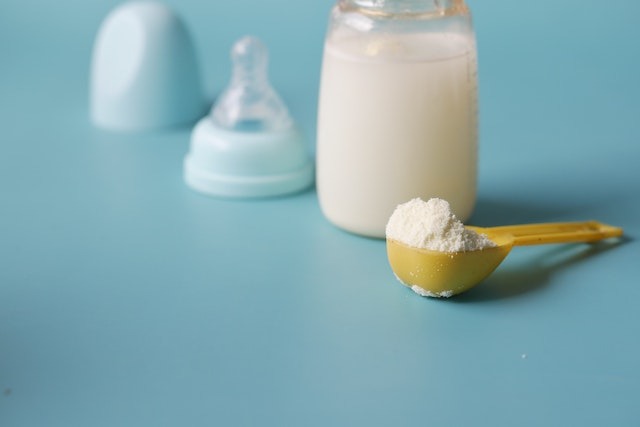Growing babies need plenty of nutrients. Some mothers feed their babies breast milk, but others rely on baby formula to give their babies the nutrients they need. Are you curious about the difference between regular and organic formulas? Which one is better? This article discusses the difference between the two and provides a list of benefits that organic baby formula has compared to conventional baby formula.
The Difference Between Organic and Conventional Baby Formula
Organic baby formula, as the name suggests, is made from organic ingredients. If an ingredient is labeled “organic,” it means it doesn’t have any synthetic pesticides, herbicides, or fertilizers. They also don’t contain any genetically modified organisms, also known as GMOs. To use the term “organic,” companies have several rules and regulations they have to follow. For example, makers of organic baby formula cannot use ingredients that contain antibiotics, growth hormones, and other synthetic additives. To learn more about this, check out organicbabyformula.com.
A regular baby formula does not have to be made from ingredients that are labeled organic. This means conventional baby formula may have ingredients treated with synthetic pesticides, herbicides, or fertilizers or may come from cows that have been given antibiotics or hormones. Both forms of baby formula will nourish your baby, but the main difference is the type of ingredients used.
5 Benefits of Organic Baby Formula Compared to Conventional Baby Formula
The list below explains a few key benefits of choosing organic baby formula over regular baby formula to help you make the most informed decision for you and your baby.
No Artificial Ingredients
Additives like artificial flavors, colors, and preservatives can harm your baby’s health. Organic baby formula doesn’t have these additives. The regular baby formula may contain these additives, which many mothers do not want. It is best to take a look at the ingredients to see what formula has before purchasing it for your little one.
No Hormones
As mentioned above, organic baby formula cannot contain ingredients from cows that have been given hormones or antibiotics. Dairy cows are often given growth hormones to increase milk production. Regular formula may contain milk from cows that have received these growth hormones (rBGH). Some studies show that rBGH can cause early puberty in girls. If this sounds worrisome to you, consider buying an organic formula that does not contain milk with growth hormones added.
No Antibiotics
Dairy farmers often give their cows antibiotics to keep them from getting sick. An organic baby formula does not use milk from these cows. Overuse of antibiotics leads to stronger bacteria. As the bacteria gets stronger, it becomes more resistant to antibiotics. When that happens, the antibiotics don’t work as well, so when we take them, they don’t do much. This can seriously affect our health. Babies that drink regular formula may be exposed to an antibiotic-resistant strain of bacteria. This is one reason why choosing organic over regular formula may be the healthier, safer option for your infant.
Environmentally Sustainable
Organic farming is more sustainable than regular farming because it uses ingredients from farms that use more environmentally friendly and sustainable methods. Buying organic formulas helps support sustainable agriculture, which reduces your carbon footprint. This is great for parents that want to help keep the earth safe for future generations. The regular formula may have ingredients from farms that don’t use these methods. Regular farming can have a huge impact on the environment, and not in a good way.
Reduced Risk of Contamination
Conventional farming uses harmful substances like heavy metals, pesticides, and herbicides. These substances can contaminate the formula made with those ingredients. Organic baby formula is less likely to have these things in it because organic farming methods limit the use of chemicals and pesticides. All baby formula production has FDA regulations, but organic baby formula reduces the risk of exposure to certain contaminants.
A fed baby is best, but parents can still make choices that help keep their children safe. There is nothing wrong with regular baby formula. However, using organic baby formula instead can reduce your baby’s exposure to chemicals, additives, contaminants, and antibiotics. Organic baby formula is also a great choice for parents who want to support sustainable agriculture and reduce the environmental impact farming has on the Earth. Figure out what is important to you, do some research, and pick the right formula for your growing baby. It’s also not a bad idea to talk to your baby’s doctor before making any changes. This helps ensure your baby is happy, healthy, and well-fed.

